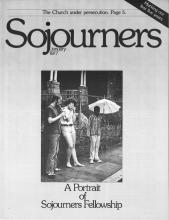I am the good shepherd; I know my own and my own know me, as the Father knows me and I know the Father; and I lay down my life for the sheep.--John 10:14-15
When Jesus asked the Galileans to leave everything behind and take up a new life together with him, he asserted radical change to be at the entrance to the new kingdom he was calling them to. Jesus enveloped his followers in the penetrating example of his own humanity, and he exposed their deepest interior life to the judgment of his teachings.
He knew what was in people's hearts. For three solid years a small group of his countrymen opened themselves to him in profound personal interaction. Their lives were reset for leadership among the new people of God whose corporate birth would happen soon after his own death and resurrection. He was instructing them in an earthly lifestyle based upon otherworldly principles; in so doing he called them not so much to a spiritual revival as to a total environmental revolution.
Jesus' message was a radical one about new birth, never simply a good word about another approach to life. Change, even disruptive change, in every conceivable human circumstance was at the heart of the good news he brought from God, and the word he and his New Testament contemporaries used to denote it was repent: forsake or turn away from.
It would seem that Jesus' immediate disciples had an easier time of change-making or repenting with respect to lifestyle than we do. But they had his physical presence. They slept where he slept, they ate with him, and they followed his lead along the seashore, into the villages and the countryside. His life demonstrated in common, fleshed-out terms the principles of life in another kingdom, the kingdom his Father had given him sole authority to proclaim was coming on earth for all people.
Read the Full Article

